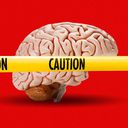The holiday season is testing our pandemic decision-making and distorting our risk perception

Published Date: 11/12/2020
Source: axios.com
As the pandemic accelerates in the U.S. and dire warnings come about the winter ahead, people are weighing the risks of celebrating the holidays with family and friends.Why it matters: The pandemic-holiday punch can distort our perception of risk, but there are a few good tips for smart decision-making in these unprecedented times. Where it stands: The virus remains a serious threat — 62,000 Americans are in the hospital for coronavirus infections, "higher than it’s ever been, and still climbing," my Axios colleague Sam Baker reports.The CDC on Wednesday updated its guidelines for celebrating the holidays, emphasizing that small gatherings contribute to the surge in cases being seen. The agency says the risk of gathering in groups varies and outlined several considerations, including, whether you plan to be inside or out, the number of people, how you'll travel to get to the location and the extent of the outbreak in the area.How it works: Decision-making isn't an entirely rational process: It also tugs on the brain's reward and emotional circuits.When we interact socially, for example, dopamine is released in reward pathways in an area of the brain called the ventral striatum. That interacts with another region, the ventromedial prefrontal cortex, which weighs the pros and cons of different actions. The amygdala and other parts of the limbic system that govern our emotions can also be engaged in decision-making. Together, these different regions of the brain assess emotions and information, tapping into our personality and tendencies for risk as well as our understanding of risk as it relates to our age and health, and arrive at a decision. What's new: COVID-19 is presenting the brain with novel scenarios and information that influence our decision-making.Many of us have never experienced a severe pandemic and the many unknowns that come with it, leading us to sometimes look to how others are responding. We also draw on our personal experience of the pandemic itself, especially if we've witnessed someone becoming ill or dying, for example, ProPublica explains.Our identity also strongly affects our decision-making, says Gaurav Suri, a computational neuroscientist who studies decision-making at San Francisco State University. He points to mask-wearing, behavior that early in the pandemic was influenced by how we identify politically. The flip side: There's also outside information that signals to the brain things are somewhat normal — stores are open, times passes, your dog looks the same — and the brain clings to that because we desire normalcy, Suri says.The result: People come to different conclusions about their risks and make decisions based on the interaction and strength of many different networks, he argues. What's next: The holidays will test our ability to assess our risk."Not only are we combatting this [pandemic] fatigue, not only are we combating this tendency for homeostasis, now we're combating the stirrings of memory, joy and meaning that accompany these holidays that involve getting together," says Suri.What to watch: Biases — how a risk is framed and by whom, or what information is initially presented — can also influence our decision-making. Understanding such cognitive biases could help public health officials present information about COVID-19 in a way that helps people properly assess risk, says Mauricio Delgado, a professor of psychology at Rutgers University.How to assess your risk:Take the time to proactively make a decision, says Erin Berman, a clinical psychologist at the National Institute of Mental Health. Do something to relax or decompress — run, walk, talk to a friend — before you make a decision, she adds. That can calm you down and reduce extreme thoughts you might have about your risk and benefits. Some experts suggest keeping a "risk budget," Kayt Sukel writes for Forge. By spending some risk on an indoor meal at a restaurant, some risk is then subtracted from the column you might have been holding for gathering with family. Such budgeting can help to mitigate risk and bring decision-making back into the realm of cognitive regulation while minimizing our emotions about it.Your emotions can also work for you. Research suggests considering the risk of COVID-19 to others can lead us to make better judgments about safe behavior, says Becky Ferrer, who studies health-related risk perception at the National Cancer Institute. And studies of other diseases indicate imagining someone we care about becoming sick can also shift our perception of risk. "We need to better calibrate our feelings of risk with the actual risks for us and other people," she says.Keep in mind: Individuals have different tolerance for risk that should be respected, especially in these times of stress, says Delgado. There's enough to debate at the holidays.